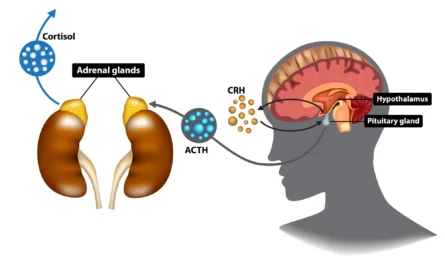A recent review paper conducted by researchers at Brigham and Women’s Hospital and their international collaborators challenges the commonly held belief that menopause inevitably leads to increased risk of depression and other mental health issues. The study, published in The Lancet, is part of a series of papers focused on menopause and its impact on women’s health.
Contrary to previous assumptions, the researchers found that menopause does not universally elevate the risk of mental health conditions such as depressive symptoms, major depressive disorder, anxiety, bipolar disorder, and psychosis for all women. However, certain groups were identified as being more susceptible to mental health issues during menopause, including individuals with a history of depression, those experiencing disrupted sleep due to nocturnal hot flashes, and those encountering stressful life events alongside the transition.
Co-senior author of the study, Hadine Joffe, emphasized the importance of not automatically linking mental health symptoms during menopause to the transition itself. She highlighted the need for accurate diagnosis and personalized treatment, considering the complex interplay of hormonal changes, midlife stresses, and pre-existing mental health conditions.
The menopause transition typically spans four to ten years, starting around the age of 47, and coincides with various life challenges that may contribute to psychological distress. The researchers examined previous studies to assess the association between menopause and mental health conditions, with a focus on prospective studies that compared mental health before, during, and after menopause.
Their findings revealed that while some individuals may experience depressive symptoms during menopause, clinical depression is more likely in those with a prior history of the condition. Factors such as prolonged menopause transition, severe sleep disruptions, and recent stressful events were also linked to increased depressive symptoms.
In contrast, there was limited evidence suggesting a universal elevation in anxiety, bipolar disorder, or psychosis during the menopause transition. The researchers noted the lack of research on these conditions in relation to menopause, highlighting the need for further investigation and consideration of diverse populations, including transgender and gender-diverse individuals.
The study concluded that hormonal therapy may not be the most effective initial treatment for clinical depression during menopause. Instead, clinicians are advised to carefully evaluate each patient’s background, previous mental health diagnoses, and current circumstances when addressing mental health symptoms during menopause.
Joffe emphasized the importance of considering individual differences and pre-menopausal mental health when evaluating the impact of menopause on mental well-being. By taking a holistic approach, clinicians can better distinguish between menopause-related factors and other life stage influences when addressing mental health concerns in menopausal women.




